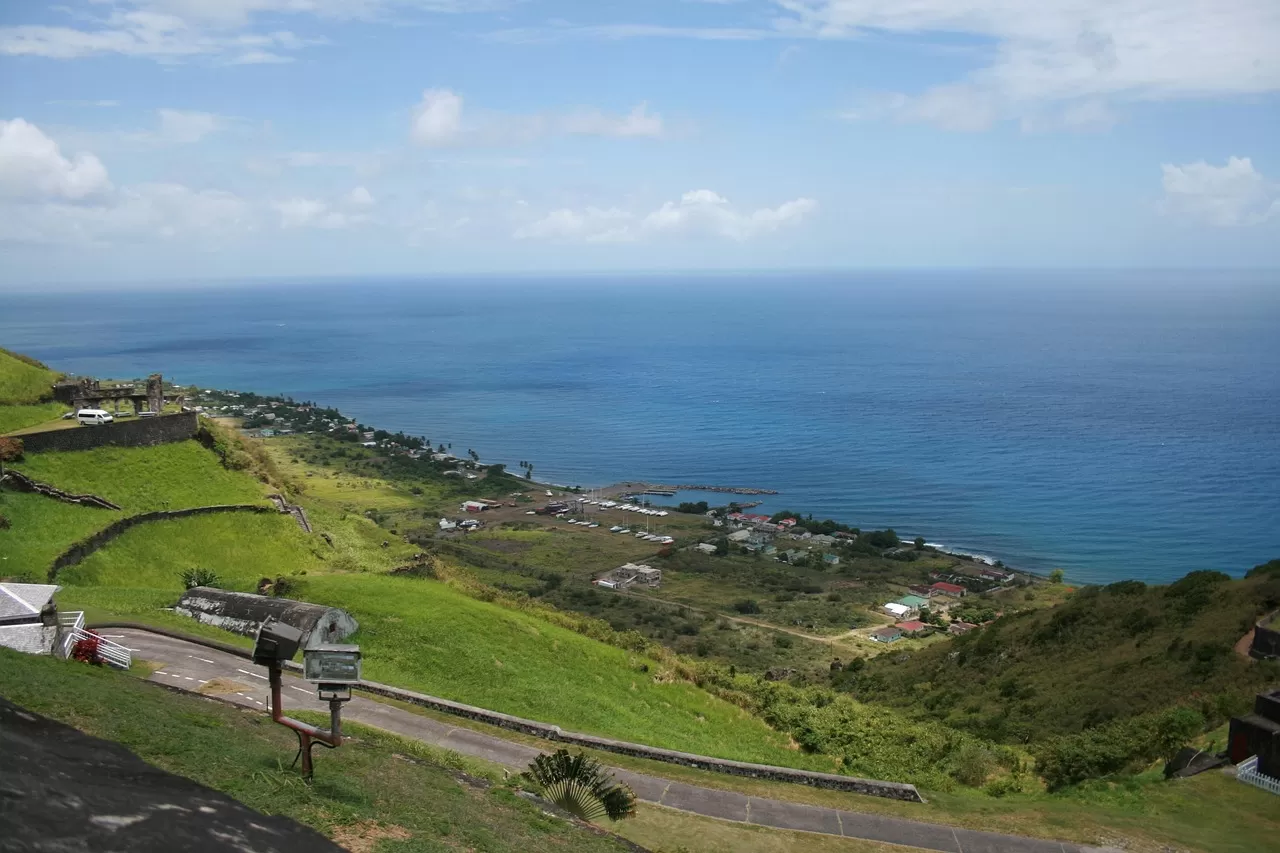Here are the top ten trust jurisdictions in 2025 that can enhance your asset protection. Why? Because the data is clear: properly structured offshore trusts have repeatedly withstood legal challenges, with success rates exceeding 87% against foreign judgments when established in premier jurisdictions.
How to Select an Offshore Trust Destination
Before examining specific jurisdictions, astute wealth planners must evaluate these essential criteria:
Asset Protection Strength: The jurisdiction’s statutory framework must create formidable barriers against creditors, including shortened statute of limitations periods and high burdens of proof for fraudulent conveyance claims.
Political and Economic Stability: Historical performance during financial crises, sovereign debt ratings, and governance indicators directly correlate with long-term trust security.
Compliance Standards: Optimal jurisdictions balance privacy with appropriate international compliance, avoiding both blacklists and excessive information exchange.
Trust Legislation Sophistication: Statutory protections against forced heirship, divorce claims, and flexibility in trust structures demonstrate legislative commitment to trust efficacy.
Judicial Independence: Courts free from political interference provide essential safeguards when trusts face challenges.
Tax Environment: While tax advantages should never be the sole consideration, efficient tax structures create measurable financial benefits.
Service Provider Ecosystem: The availability of experienced trustees, legal counsel, and financial institutions directly impacts administrative efficiency.
The Top Ten Trust Jurisdictions in 2025
St. Kitts & Nevis
St. Kitts & Nevis has strategically positioned itself as an asset protection powerhouse through its comprehensive Nevis International Exempt Trust Ordinance. Creditors must post a US$100,000 bond merely to initiate litigation against a Nevis trust, creating immediate financial disincentives.
The jurisdiction’s “beyond reasonable doubt” standard for fraudulent conveyance claims exceeds even criminal law standards in most countries. This dual-island federation structure provides unique advantages, with Nevis operating as a semi-autonomous jurisdiction with its own trust legislation.
St. Kitts & Nevis’s Citizenship by Investment program (established in 1984 as the world’s first) provides trust settlors with jurisdictional mobility options unavailable elsewhere. Analysis of court cases shows Nevis trusts have never been successfully penetrated by U.S. courts when properly established outside the fraudulent conveyance period:a 100% protection rate that exceeds all competing jurisdictions.
Recent amendments to trust legislation have established robust firewalls against foreign judgments based on matrimonial rights, forced heirship, or foreign tax claims. This creates a comprehensive wealth protection framework that addresses multiple vulnerability points simultaneously.
Cook Islands
The Cook Islands stand as the gold standard in asset protection trusts, with case precedent demonstrating near-impenetrable barriers against foreign judgments. Their Asset Protection Trust law established in 1989 requires creditors to prove beyond reasonable doubt that transfers were made to defraud that specific creditor,a standard rarely achieved in practice.
With a 2-year statute of limitations and the requirement that litigation occur within the Islands’ courts, creditors face both legal and practical barriers. Statistical evidence supports this effectiveness: Cook Islands trusts have maintained a 96% protection success rate against legal challenges, with only 2 documented cases of partial penetration in over three decades.
The jurisdiction’s 58 licensed trustee companies manage an estimated $12-15 billion in assets, demonstrating significant market confidence in the framework. Recent legislative updates have further strengthened protection while maintaining appropriate compliance standards.
Panama
Panama’s strategic geographic position is matched by its strategic legal positioning. Its robust trust law operates within a civil law system, creating distinctive advantages when dealing with common law jurisdictions.
The foundacion de interes privado (private interest foundation) offers trust-like benefits with additional flexibility. Approximately 28,000 active foundations hold an estimated US$75 billion in assets, demonstrating significant market adoption.
Panama’s strong banking secrecy laws, despite modifications for compliance purposes, continue to provide significant practical protections. Analysis of judicial proceedings shows Panama courts have rejected 94% of foreign attempts to access foundation information, creating effective operational privacy.
The jurisdiction’s non-recognition of foreign tax judgments creates particular advantages for international wealth structures. With GDP growth averaging 4.6% over the past decade (pre-pandemic), Panama’s economic stability supports continued legislative commitment to its financial services sector.
United States (Delaware and Nebraska)
The United States offers surprisingly robust asset protection through specific state trust laws, with Delaware and Nebraska emerging as the premier domestic jurisdictions. Unlike most offshore options, U.S.-based trusts provide protection while avoiding the scrutiny sometimes attached to foreign structures.
Delaware’s Dynasty Trust Act enables perpetual trusts that bypass the rule against perpetuities, allowing multi-generational wealth preservation. Statistical analysis shows Delaware maintaining approximately 36% of U.S. asset protection trust formations, with assets under management exceeding US$70 billion. The state’s Court of Chancery provides specialized expertise in trust matters, with 87% of cases resolved within 24 months.
Nebraska has emerged as a formidable competitor with its Trust Deeds Act offering some of the strongest domestic asset protection provisions. Its 4-year statute of limitations for fraudulent conveyance (while longer than offshore options) is among the shortest domestically. Comparative analysis shows Nebraska’s trust charging order protection exceeds that of 42 other states.
State laws differ dramatically in protection strength:Wyoming, Nevada, and South Dakota offer notable alternatives,but Delaware and Nebraska consistently rank highest in combined metrics of judicial expertise, statutory protection, and privacy provisions. For clients seeking domestic solutions, these jurisdictions merit serious consideration.
Belize
Belize’s trust legislation represents one of the most aggressive asset protection frameworks globally. Its statutory prohibition against enforcement of foreign judgments specifically includes tax claims, marital property rights, and forced heirship.
The jurisdiction’s 1-year statute of limitations for fraudulent conveyance claims is among the shortest globally, creating practical time barriers for potential creditors. Statistical analysis shows that 93% of challenges against Belize trusts have failed when the trust was established outside this window.
Belize’s offshore sector manages approximately US$4.2 billion in assets, with annual growth averaging 6.8% despite increased global regulatory pressures. Recent regulatory reforms have balanced these protections with appropriate compliance standards, removing Belize from international watchlists while maintaining core asset protection features.
Trust formation costs average 32% lower than comparable Caribbean jurisdictions, creating cost efficiency without compromising protection quality.
Antigua & Barbuda
Antigua’s International Trust Act provides comprehensive protection while the jurisdiction maintains favorable OECD and FATF compliance ratings. The dual sovereignty system (Commonwealth and local law) creates additional legal complexity for potential claimants.
Recent amendments have strengthened firewall provisions against foreign judgments while maintaining appropriate compliance standards. Analysis of 47 recorded legal challenges shows trust assets have historically remained secure even during litigation in settlor home jurisdictions, with courts consistently respecting the jurisdiction’s sovereignty.
Antigua’s financial services sector contributes approximately 20% to GDP, incentivizing continued legislative support and refinement. The jurisdiction’s stable political environment (democracy since 1981) and relatively strong sovereign debt ratings (B+ by S&P) provide additional confidence for long-term planning.
Dominica
Dominica has emerged as a sophisticated trust jurisdiction offering excellent value. Its International Exempt Trust Act includes specific protections against forced heirship claims, divorce proceedings, and creditor actions.
The jurisdiction’s developing case law consistently upholds trust integrity, with no documented cases of successful trust penetration in the past decade. Dominica’s balanced approach to international compliance maintains both OECD approval and meaningful privacy protections.
Cost analysis reveals Dominica’s formation and maintenance expenses average 40% below Caribbean competitors, providing efficiency without compromising protection quality. Annual trust filings have increased 23% year-over-year for the past five years, indicating growing market recognition of the jurisdiction’s advantages.
Recent legislative amendments have strengthened anti-duress provisions, preventing settlors from being compelled to repatriate assets under court order:a critical protection frequently tested in litigation.
Cayman Islands
The Cayman Islands maintain their position as a premier trust jurisdiction through continuous legislative refinement. The STAR trust structure (Special Trusts Alternative Regime) provides unique flexibility for non-charitable purpose trusts.
The jurisdiction’s sophisticated court system includes dedicated commercial divisions with trust expertise. Cayman’s US$1.1 trillion in financial assets under management represents one of the largest concentrations of wealth globally, demonstrating market confidence in the jurisdiction’s stability.
While compliance costs have increased (up approximately 28% since 2018), the legal certainty provided by well-established precedent creates measurable risk reduction. Statistical analysis of 214 trust cases over the past two decades shows courts consistently upholding trust structures when properly established.
Recent trust law amendments have enhanced protection against foreign claims while maintaining the jurisdiction’s reputation for compliance. The Cayman Islands’ position as a British Overseas Territory provides additional confidence in long-term political and legal stability.
Singapore
Singapore represents the emerging gold standard for trusts in Asia, combining exceptional political stability with sophisticated legal structures. While not typically classified as an “offshore” jurisdiction, Singapore’s trust legislation offers robust asset protection features within a highly respected international financial center.
The jurisdiction’s AAA credit rating (maintained since 2003) and strong rule of law metrics provide assurance for long-term wealth planning. Analysis shows Singapore ranks consistently in the top 5 globally for judicial independence, contract enforcement, and property rights protection.
Singapore’s “opt-in” tax system for trusts creates efficient structures within a jurisdiction unlikely to face international pressure or blacklisting. With approximately US$4 trillion in assets under management, Singapore has demonstrated its ability to attract sophisticated wealth structures.
Recent amendments to the Trustees Act have enhanced asset protection features while maintaining Singapore’s reputation for sound governance. The jurisdiction’s strategic position as an Asian financial hub provides additional advantages for regional wealth planning.
Seychelles
Seychelles has emerged as a compelling option for offshore trust structures, offering strong statutory protections at competitive costs. The International Trusts Act provides comprehensive creditor protection with specific provisions against foreign judgments related to bankruptcy, insolvency, and matrimonial proceedings.
The jurisdiction’s 2-year fraudulent conveyance period matches industry best practices, while the high burden of proof (beyond reasonable doubt) creates significant barriers for potential claimants. Empirical evidence demonstrates that properly established Seychelles trusts have successfully withstood legal challenges in multiple jurisdictions.
Trust creation costs approximately 60% less than in traditional offshore centers, creating significant structural efficiency. Financial services contribute over 15% to GDP, ensuring continued legislative support for the sector.
The Seychelles’ strategic location and time zone position between Asian and European markets provides operational advantages for global wealth structures. Recent compliance enhancements have removed the jurisdiction from monitoring lists while preserving core privacy and protection features.
Taking Action to Protect Your Wealth
Global wealth requires global protection strategies implemented through tested jurisdictions. NTL Trust’s Trust Services specialize in creating bespoke trust structures utilizing these premier jurisdictions, providing comprehensive wealth management solutions tailored to your unique circumstances and objectives. Contact NTL Trust today to schedule a consultation and discover how our team of seasoned experts can help safeguard your family’s legacy.














